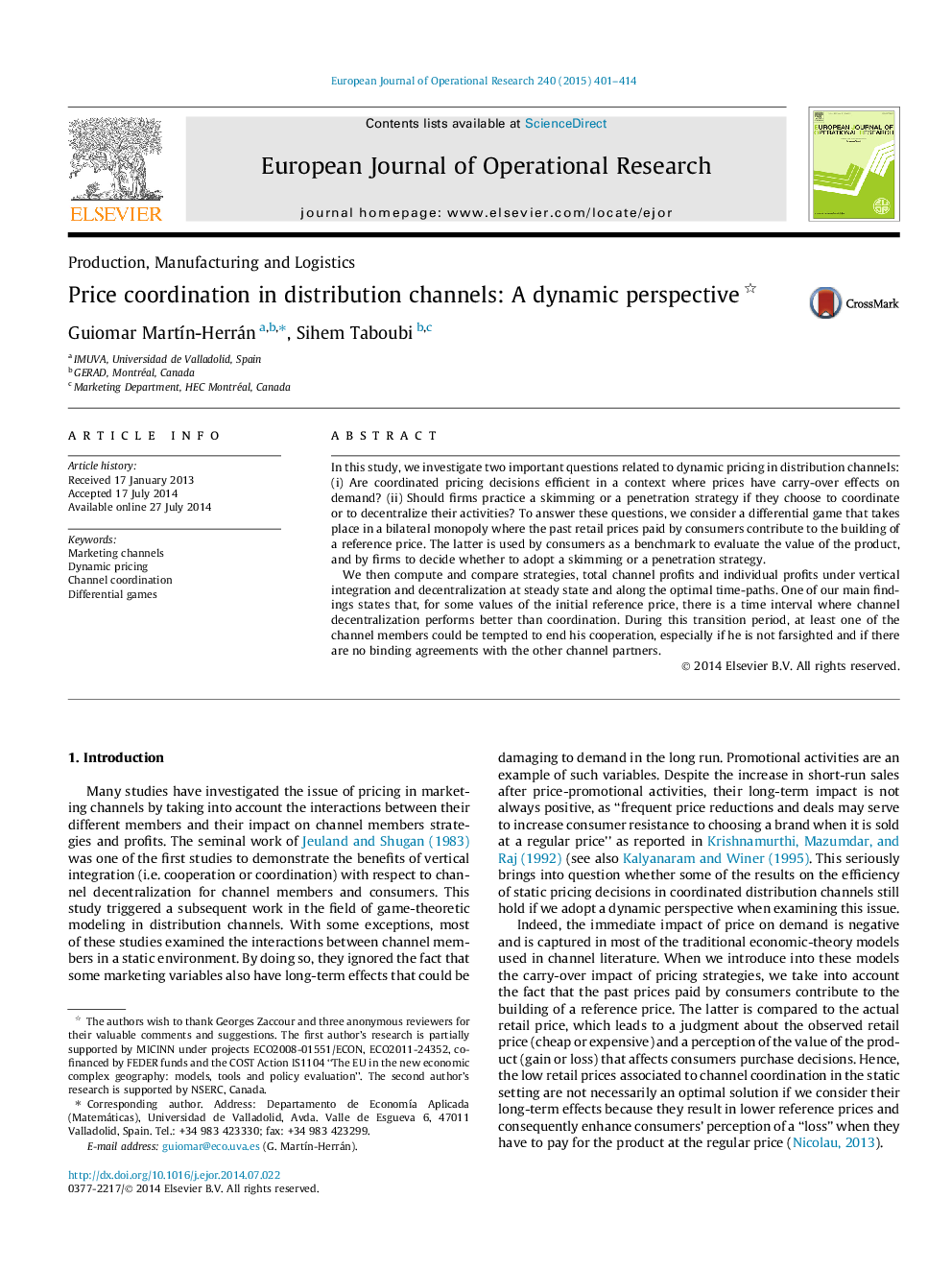| Article ID | Journal | Published Year | Pages | File Type |
|---|---|---|---|---|
| 479750 | European Journal of Operational Research | 2015 | 14 Pages |
•We use a differential game to study price coordination in bilateral monopolies.•Prices have a carry-over effect on demand through the building of a reference price.•Results are compared under two scenarios: decentralization and vertical integration.•We find a time interval where decentralization is better than vertical integration.
In this study, we investigate two important questions related to dynamic pricing in distribution channels: (i) Are coordinated pricing decisions efficient in a context where prices have carry-over effects on demand? (ii) Should firms practice a skimming or a penetration strategy if they choose to coordinate or to decentralize their activities? To answer these questions, we consider a differential game that takes place in a bilateral monopoly where the past retail prices paid by consumers contribute to the building of a reference price. The latter is used by consumers as a benchmark to evaluate the value of the product, and by firms to decide whether to adopt a skimming or a penetration strategy.We then compute and compare strategies, total channel profits and individual profits under vertical integration and decentralization at steady state and along the optimal time-paths. One of our main findings states that, for some values of the initial reference price, there is a time interval where channel decentralization performs better than coordination. During this transition period, at least one of the channel members could be tempted to end his cooperation, especially if he is not farsighted and if there are no binding agreements with the other channel partners.
